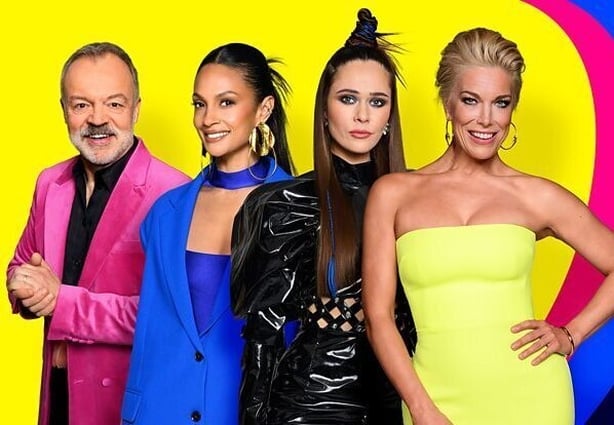It's Eurovision time again! Find out everything you need to know about this year's event right here.
When does Eurovision 2023 take place?
This year's Eurovision Song Contest kicks off with the first semi-final tonight. The second semi follows on Thursday, 11 May.
The grand final will air on Saturday, 13 May.
Where is Eurovision 2023 being held?
The 67th edition of the Eurovision Song Contest will take place in Liverpool.
Ukraine won the 2022 competition with the song Stefania by hip-hop group Kalush Orchestra. The country was unable to host this year's competition due to the ongoing war there.
Instead, the UK was chosen as the host country after its act, Sam Ryder, turned the UK’s recent miserable form at the Eurovision around. His song Space Man secured second place, giving the UK first dibs on hosting duties.
A competition for which city would ultimately host the 2023 edition of the contest followed. Seven cities were shortlisted, including Birmingham, Sheffield and Glasgow - but Liverpool ended up on top.
This is the ninth time that the UK is hosting the contest, despite winning five times. It has stepped in several times when other countries have not been able to, or not wanted to host. In 1963, France relinquished its hosting rights as it had hosted it twice in 1959 and 1961, due to financial restrictions.
The event will be held in the city's Liverpool M&S Bank Arena, which will have a reduced capacity of around 6,000 people, due to the huge stage involved.
The theme for this year’s contest is "United by music".
Who will be taking part?
In total, 37 countries will be participating in Eurovision 2023.
Last year's winners Ukraine and the other 'Big Five' countries (the United Kingdom, Italy, Spain, Germany and France) gain automatic access to the final.
15 countries are taking part in the first semi-final and they will perform in this order: Norway, Malta, Serbia, Latvia, Portugal, Ireland, Croatia, Switzerland, Israel, Moldova, Sweden, Azerbaijan, Czech Republic, Netherlands, Finland.
The second semi-final has 16 participants and they will perform in this order: Denmark, Armenia, Romania, Estonia, Belgium, Cyprus, Iceland, Greece, Poland, Slovenia, Georgia, San Marino, Austria, Albania, Lithuania, and Australia.
Ten countries from each of the two semi-finals will proceed to the grand final, joining the "Big Five" plus Ukraine.
Similar to last year, Russia will not compete in this year's contest and its residents will also be blocked from voting in the competition.
Who will represent Ireland?
Representing Ireland this year is well-known pop/rock group Wild Youth, with their upbeat pop anthem, We Are One.
The track was chosen by a combined public and jury vote during the Eurosong 2023 special on The Late Late Show in February.
The band was formed in 2018 and its members are David Whelan, Conor O'Donohoe, Ed Porter and Callum McAdam. They've already had a host of songs make the Irish charts, including Can’t Move On and Making Me Dance.
Irish viewers will be rooting for the group to qualify for Saturday's grand final. The last time we got through to the final was back in 2018 with Ryan O'Shaughnessy's song Together.
Who will be presenting?

An all-female line-up will present the semi-finals: TV presenter and pop star Alesha Dixon; actress and musical theatre stalwart Hannah Waddingham (best-known of late from Game of Thrones and smash-hit comedy Ted Lasso); and Ukranian singer Julia Sanina, who fronts alternative rock band The Hardkiss and who was a member of Ukraine's professional jury last year.
Graham Norton will join the presenting line-up for the grand final, expected to be viewed globally by at least 160 million people.
RTÉ's coverage will be fronted by Marty Whelan.
Where can I hear the songs?
The songs competing this year are available on the official Eurovision Playlist on YouTube and on Spotify.
How can I vote?
Fans can vote over the phone, by text or via the Eurovision app.
There has been some tweaks to the voting system this year - only viewers' votes will decide which countries qualify onwards from the semi-final stage – the professional jury votes will be considered for the grand final only.
And for the first time in the competition’s nearly seven-decade history, people from countries outside the contest will be able to vote online and on the app.
Anything else unusual about this year’s contest?
Lots - not least the fact that this is the first year in which none of the songs have a key change!
Song intros have also drastically reduced in recent years – an analysis of all 1,373 Eurovision entries, going right back to the first contest in 1956, has shown that intros used to be around ten seconds on average, but now are mainly under 5 seconds or less, as artists try to grab audience’s attention as quickly as they can.
This year’s contest also has some notable absentees, with regular entrants Montenegro, North Macedonia and Bulgaria declining to take part, mainly for financial reasons.
Where can you watch Eurovision 2023?
The first Eurovision Song Contest Semi-Final will be broadcast live on RTÉ One and RTÉ Player at 8pm on Tuesday, 9 May.
The second semi-final will be aired on RTÉ2 and RTÉ Player at 8pm on Thursday, 11 May.
The Eurovision Song Contest Grand Final takes place on Saturday, 13 May at 8pm.
You can catch it live on RTÉ One and RTÉ Player.
2fm will also be covering both the first semi-final and the grand final, with Zbyszek Zalinski and Neil Doherty at the helm from 8pm on both nights.

